
Kathimerini Greece Newsroom
by Yiannis Souliotis
“I’m trying not to change, but it’s true that war affects all of us. Our behaviors change, our values change.”
Volodymyr Zelenskyy looked worn, he was probably sleepless, but he spoke passionately in his signature husky, nasal voice, stopping often to take a sip of coffee from the cup next to him.
“People here in Ukraine no longer talk about cars and houses, are not interested in their salaries or their bonuses. They only think about peace and their children’s safety. What they look forward to is to be able to dine with their families, sit around the table and lift a glass to victory.”
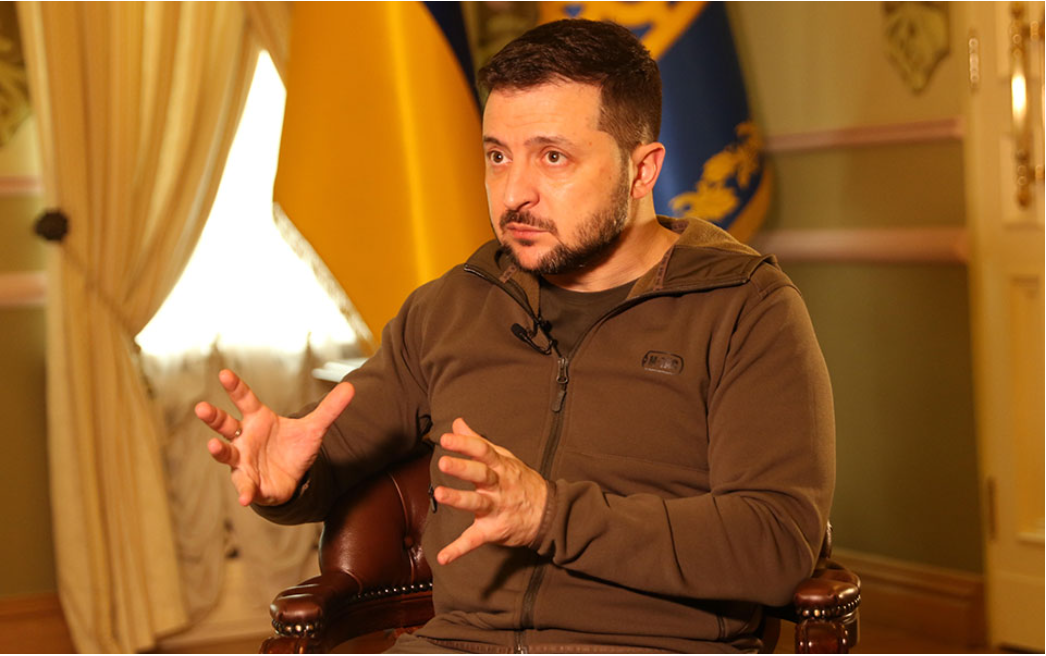
The meeting with the officials of the Ukrainian Presidency was closed, for security reasons, through the application of encrypted communication at one of the roadblocks, in the center of Kyiv. At the pre-arranged meeting point, a tall, freshly shaven Ukrainian dressed in khaki from the press service was waiting for us, who would lead the writer and the members of the ERT TV crew to the office of Volodymyr Zelenskyy. "Take your things and leave the cars here," he told us sternly.
After weeks of press coverage on behalf of the Public Television and the Kathimerini newspaper, often in fear of rocket attacks, the special moment of meeting the Ukrainian president for a private discussion in his office had now arrived.
A Day to remember. Αποστολή στο #Kiev για @ertofficial_ & @Kathimerini_gr pic.twitter.com/Ns2SHKSvI7
— Yannis Souliotis (@jeansouliotis) May 1, 2022
“Don’t waste time because you still have to go through three security checks,” the man who had welcomed us warned, seeing us stopping and staring – dazed by the historical moment – at the building around us, as soldiers had already finished the first inspection of our passports.
We walked a few dozen meters before we came to a tall, sliding metal door in the Presidential Palace courtyard, kept ajar wide enough to allow in a single person at once. There, two presidential guard soldiers checked the names in the passports against a printed list, before allowing us to continue to Volodymyr Zelenskyy’s office, in the interior of the complex of buildings making up Ukraine’s presidential palace.
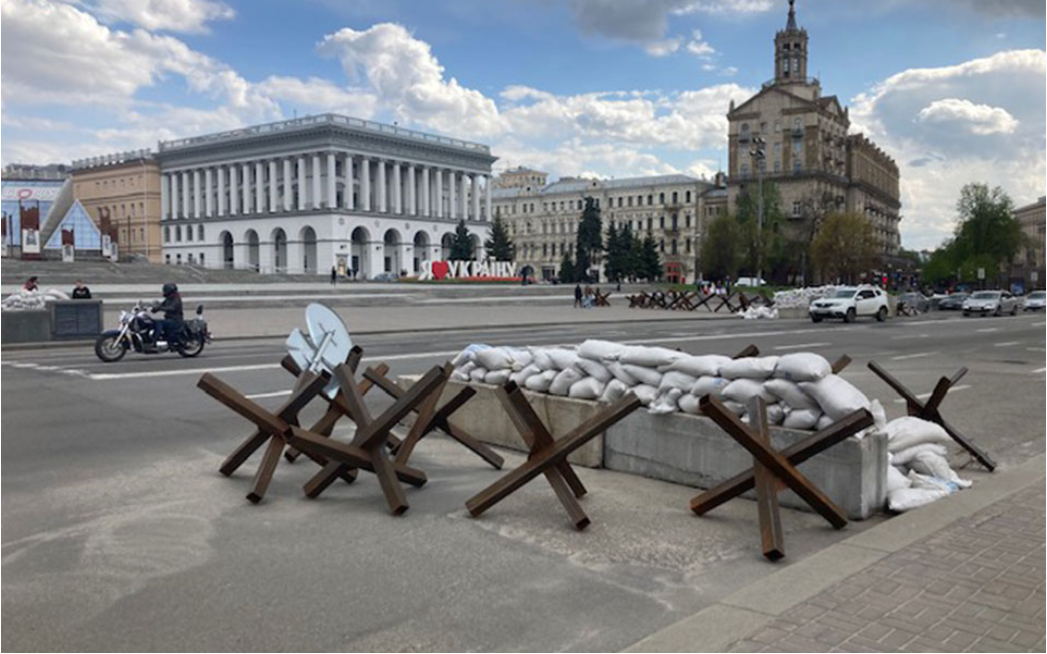
The journey to the meeting with the most talk-about politician of our time had begun four days earlier, on Wednesday morning, April 27, with a flight from Athens to Krakow, in southern Poland. From there, together with the crew from state TV ERT, we took a bus to Lviv, in western Ukraine.
We arrived at Lviv’s central station at 2:30 a.m. Thursday, after a tiring 11-hour trip, with much of that time spent on passport control at the border. After a few hours of sleep, we continued on to Kyiv in a rented Toyota.
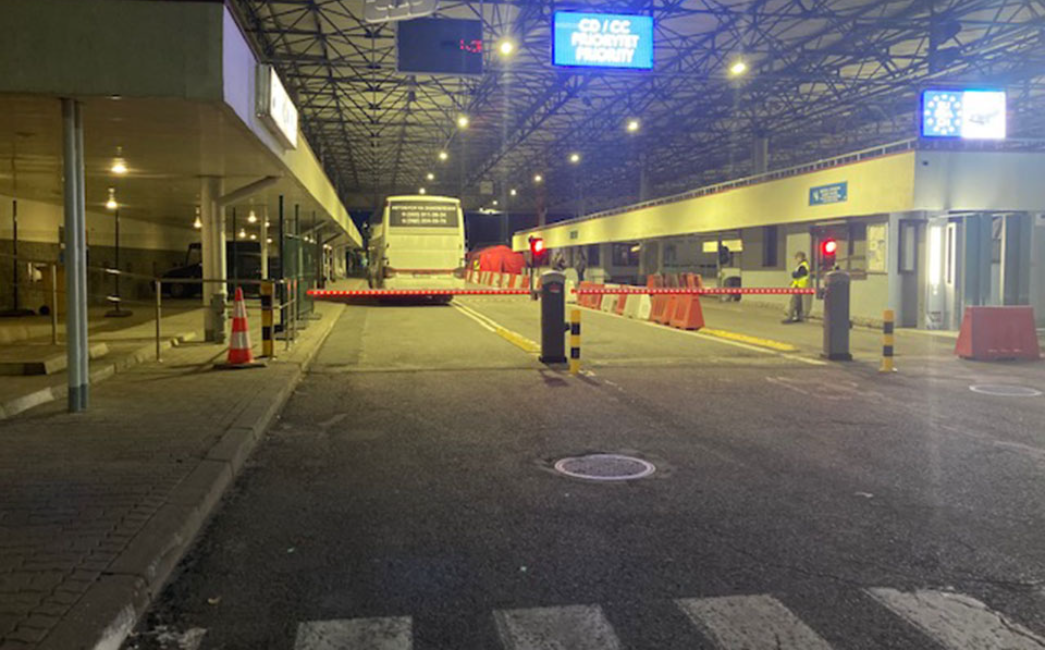
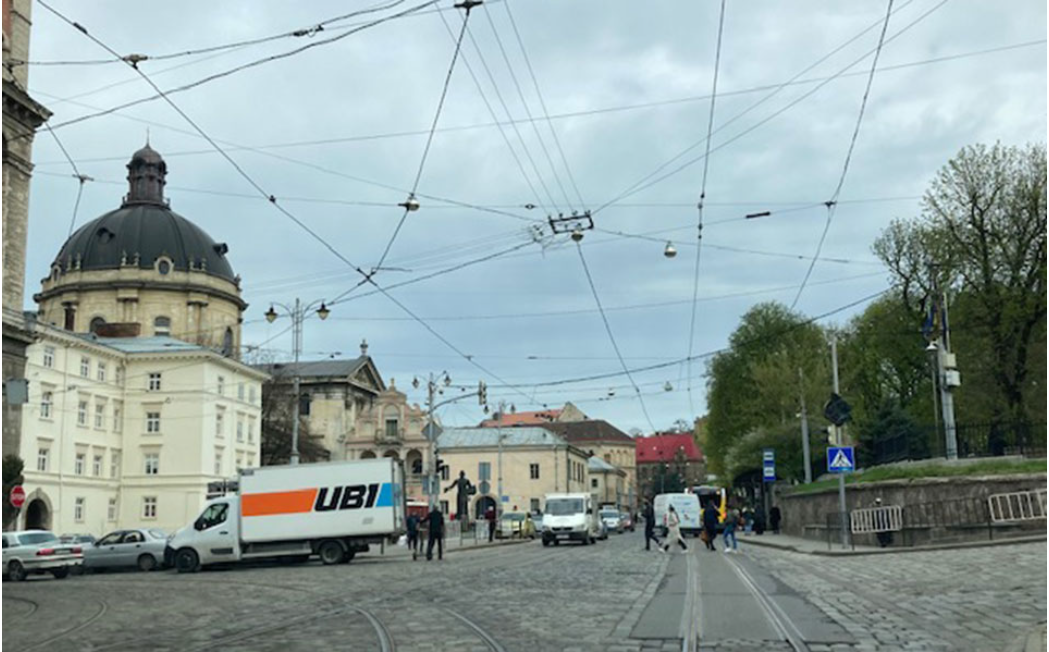
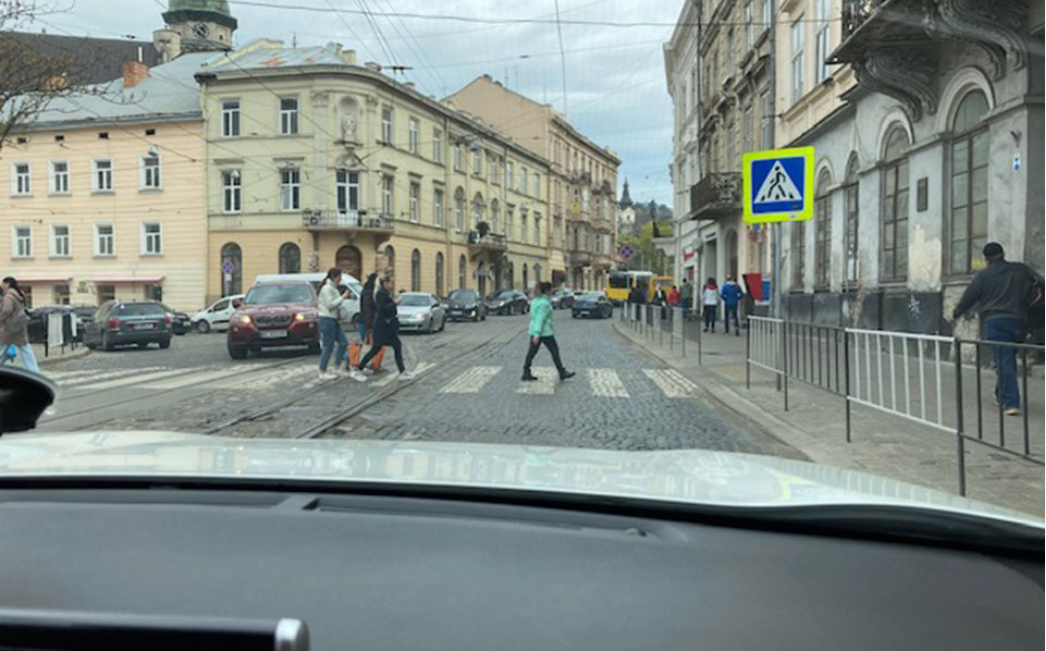
Most of the roadblocks set up during the first hours of the war were open or even abandoned; the convoys carrying humanitarian aid and the lines at gas stations selling rationed fuel were a reminder of a country at war.
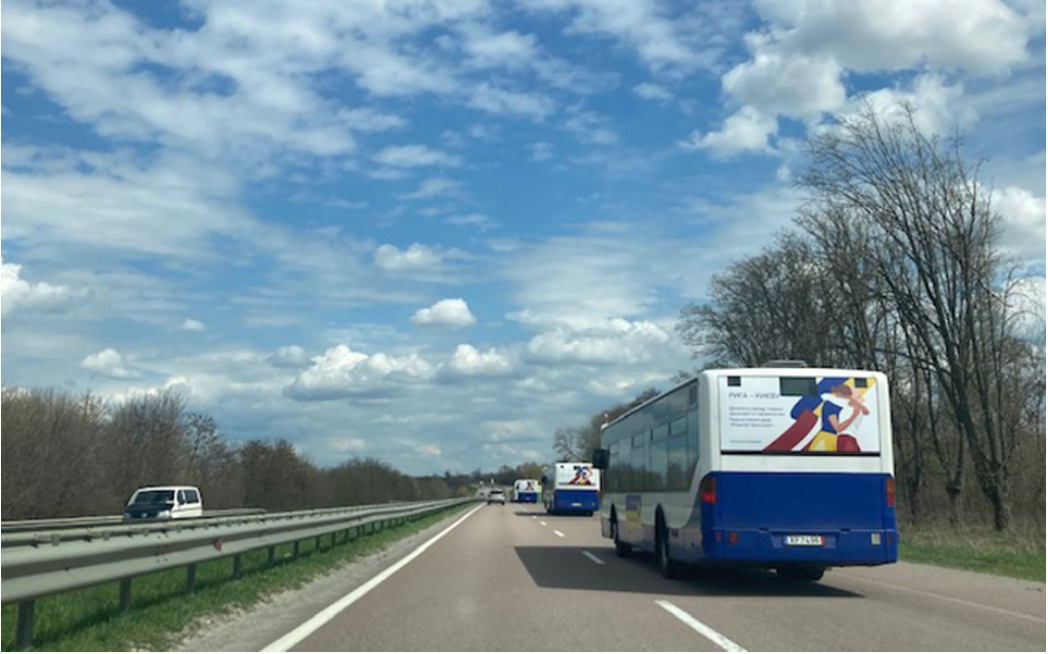
Cars were carrying families, wives and children and part of their belongings. They seemed to be returning to their homes, feeling safer than they did a few weeks earlier when bomb explosions had forced them to flee west to save their lives.
But when approaching Kyiv’s western suburbs of Makariv and Kalyvnika, the destroyed overpasses, the ruined bombarded buildings and some burnt tanks still lined on each side of the road were a reminder of the nightmarish first phase of the war.
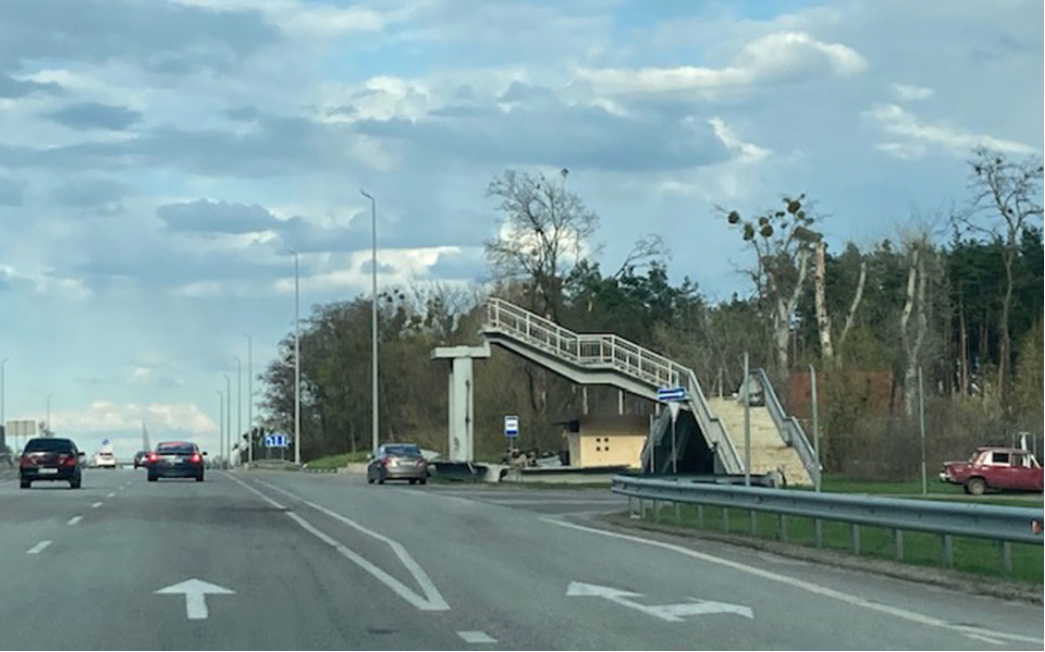
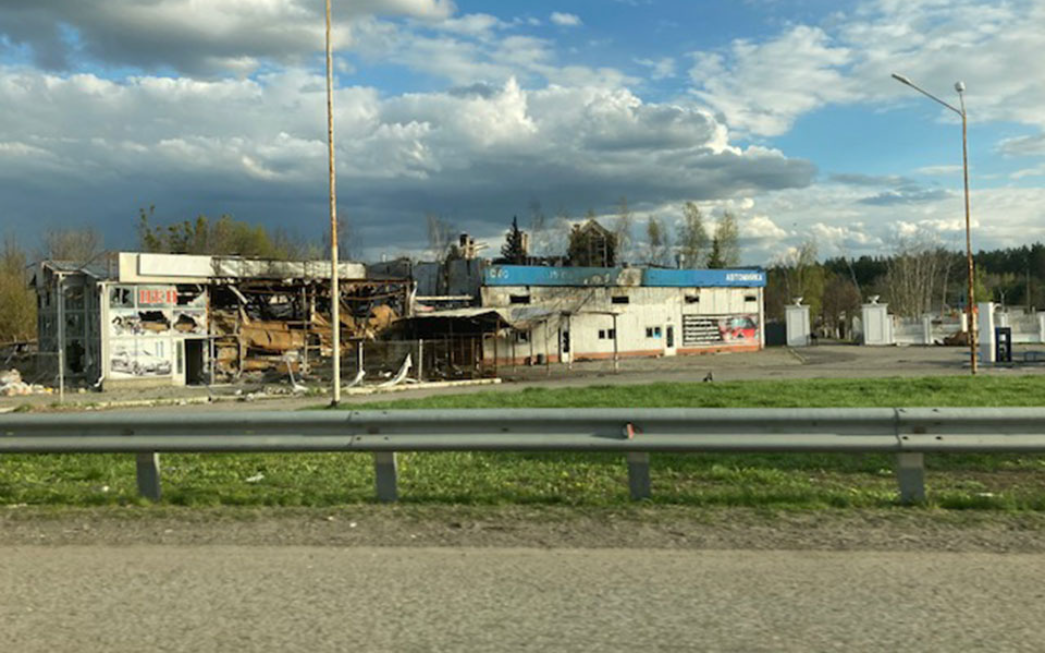
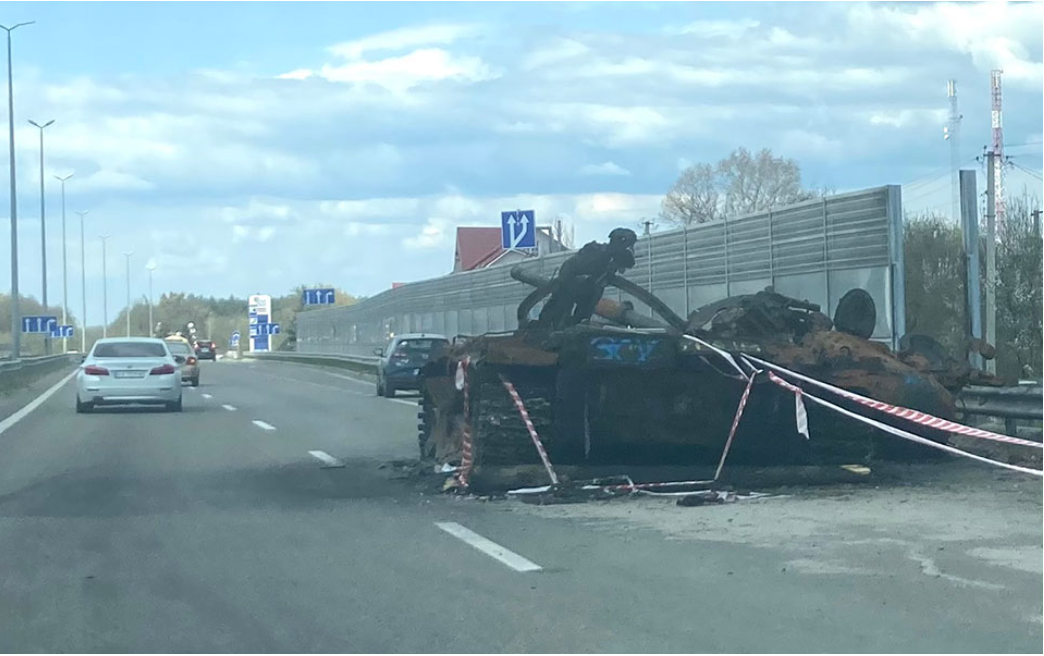
On entering Kyiv Thursday afternoon, the radio programming was interrupted by a recorded message warning of the danger of an air raid.
“What do we do know? Do we continue?” our driver, 53-year-old Sergiy asked me. He had escorted us on the trip from Lviv for security reasons.
Our traveling party did not hesitate: “we move on.”
Neither that nor the deadly missile assault that struck at night less than a kilometer from our hotel were enough to affect our morale.
We had to make our appointment with the President at any cost.
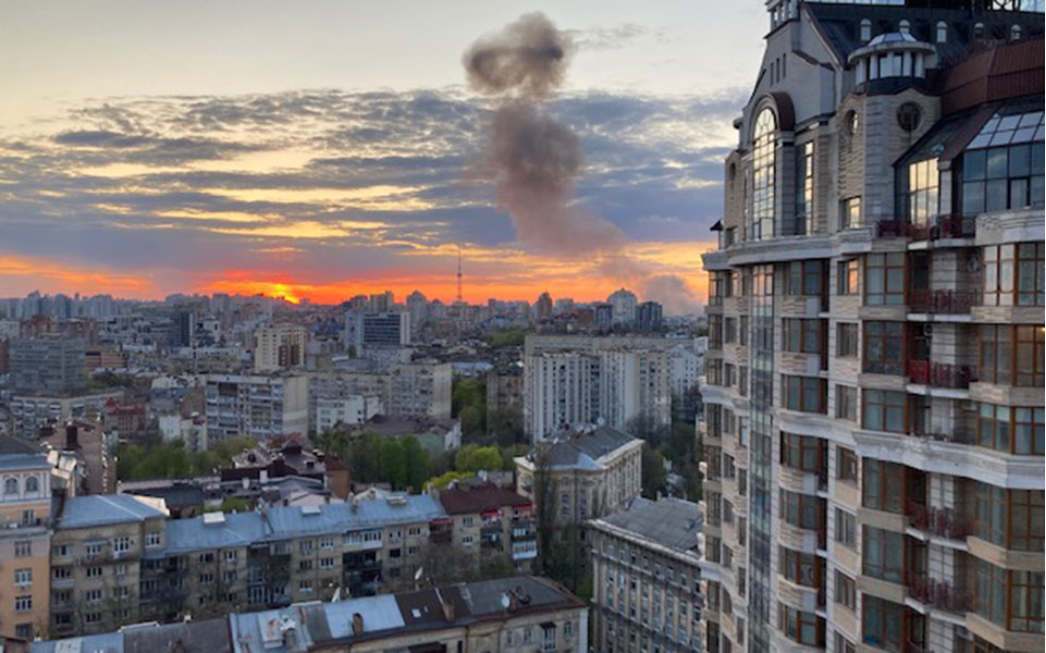
Zelenskyy’s office
Volodymyr Zelenskyy’s office is in an old building with a distinctive architectural style, with high ceilings, marble columns and impressive reliefs.
To get there, we had to go through one more checkpoint, leaving our cellphones and all devices, except what was strictly necessary for business – cameras, mics, etc.
Throughout the interview, we were surrounded by presidential guardsmen. There were sandbags in the windows of the baroque building and doors were barricaded with heavy furniture and metal railings.
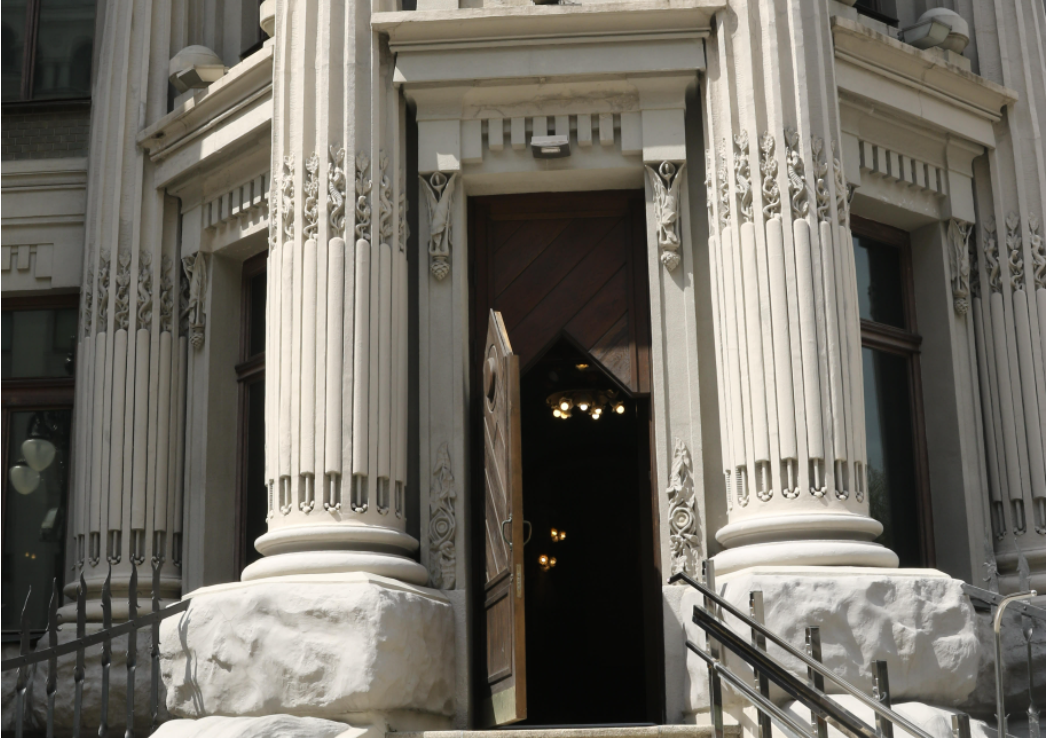
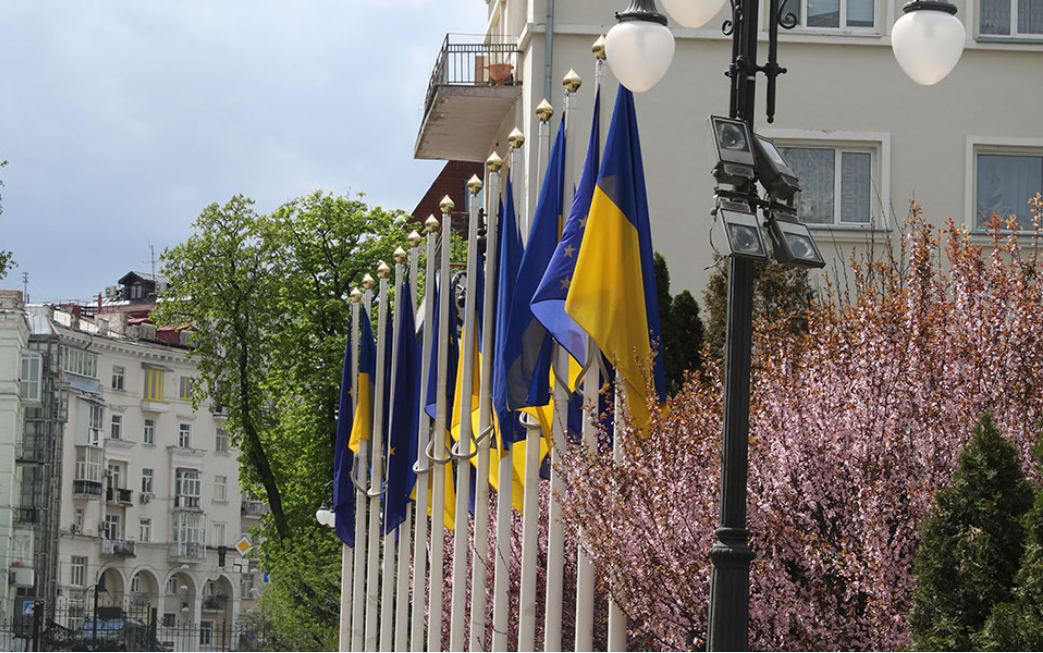
The interview
Zelenskyy joined the meeting in his well-known by now casual military attire. He looked tired but was smiling and he greeted us with a warm handshake.
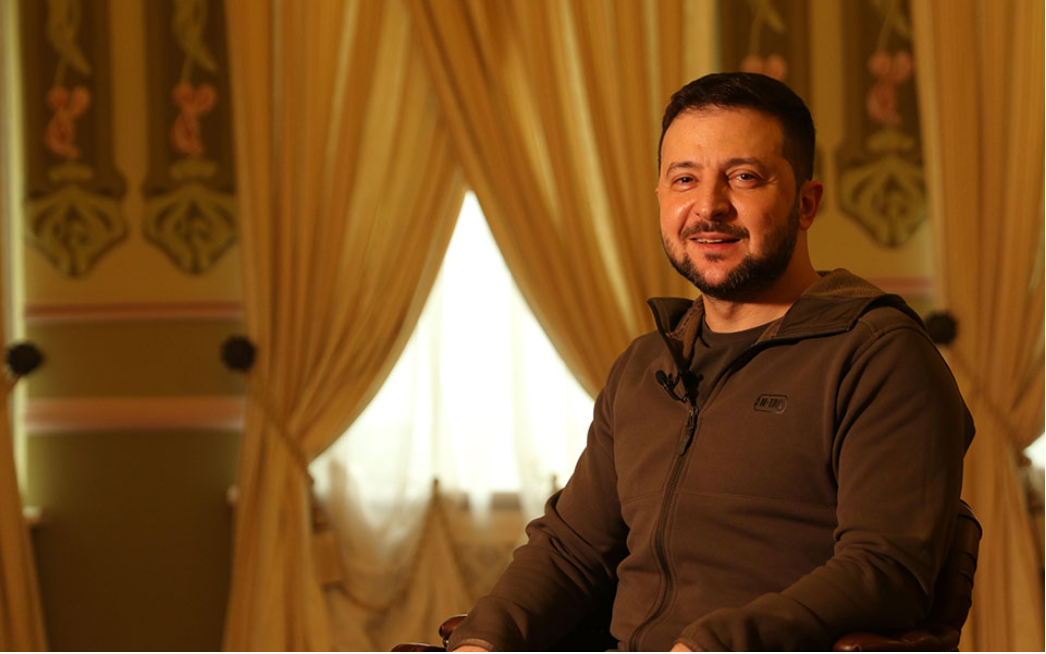
“Welcome Yannis, thanks a lot for coming,” he said, as one of his aides served us coffee.
“I know you love coffee very much in Greece, right?” he said.
“I have visited your country many times, mostly Rhodes and Crete, but never Athens,” he added.
“You didn’t miss anything, but, anyhow, you should visit (Athens) when this thing is over,” I answered.
“Yes, I will, when we win the war,” he replied.
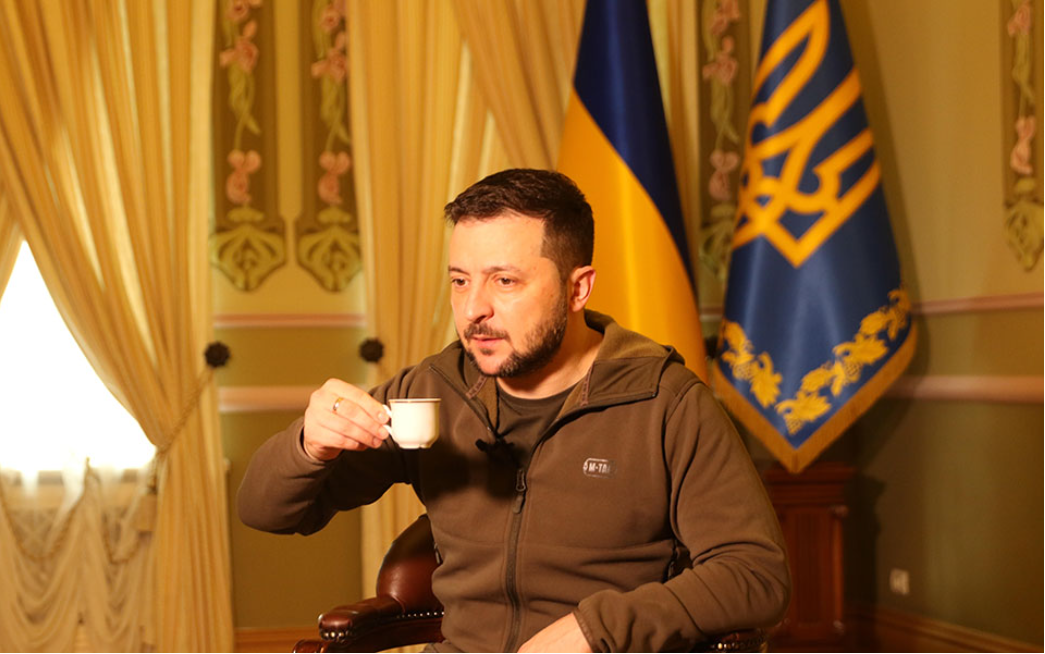
We had agreed with his spokesman on a 30-minute interview, which would be broadcast on ERT and, later, published in Kathimerini.
In the end, the discussion lasted a while longer, mainly because Zelenskyy appeared to answer spontaneously and at length to most questions, especially those of a more personal nature.
Like when he was asked what he tells his children, his friends and close collaborators, what he tells them when they ask when the war will end. “Everyone asks me, all of them,” he replies in his trademark soft-spoken, slightly nasal and husky voice. “I tell them that the war will be over when we win.”
Greece, Turkey, Azov Brigade, Putin, banned weapons
Earlier, Zelensky had referred in detail to the scenarios of a Russian nuclear attack and the use of banned weapons.
“From the start of the war, we had been preparing for all sorts of attacks. In any case, trust in the Russian side’s promises and commitments is zero. Putin used to say that he would never attack Ukraine…and they have used banned phosphorus bombs in Mariupol, Kharkiv, Zaporizhzhya and elsewhere,” President Zelenskyy said, among other things.
He estimated that, so far, the cost of the war in destroyed Ukrainian infrastructure is $60 billion and agreed to answer a question regarding the recorded message of an ethnic Greek fighter with the controversial Azov Brigade that accompanied his own message to the Greek Parliament.
Diplomatically, but also clearly, he explained that, at the start of the war in East Ukraine, in 2014, when the country did not have enough battle-ready troops, many voluntary groups were created to fight the Russian invasion, including the Azov Brigade.
“I would like to note, however, that today the Azov Brigade is part of the National Guard, of Ukraine’s Armed Forces, that is, professional soldiers who are defending Mariupol. On the contrary, it is the Russians who are behaving like Nazis.”
During our interview, he repeated two to three times that he is grateful for Greece’s aid. When asked about Western reaction, in general, he said that “as President of a country at war, it is natural to want more, faster.”
When we tried to pin him, asking whether he saw any contradiction to Turkey’s pushing for a role as the mediator for peace in the war between Russi and Ukraine while at the same time making aggressive and provocative military moves at Greece, he did not address it directly but was critical of both countries.
“When you are at war, you must do the best you can to rally countries around you, even those with historically difficult relations (among themselves),” Zelenskyy began.
“Every state has its own interests. Russian tourism has brought a lot of money to Greece for many years now. We believe (Russians) make money by spilling money, and it is this blood money (tourists) spend. The same is true of Turkey: on the one hand, Turkey is a mediator, and also supports Turkey with important actions, and on the other we see it preparing many tourist itineraries, especially for Turkish tourism.”
After about 50 minutes, and with discussions still going strong, Zelenskyy’s spokesman, who was present, intervened to remind us we had exceeded our allotted time.
“What’s the cost in human lives and infrastructure you’re prepared to bear?” I ask as we rise out of our chairs. “The lowest price possible that will allow us to keep our freedom,” he replied.
We exchanged handshakes and took photos as a memento of our meeting before we took the long road back to Athens.































